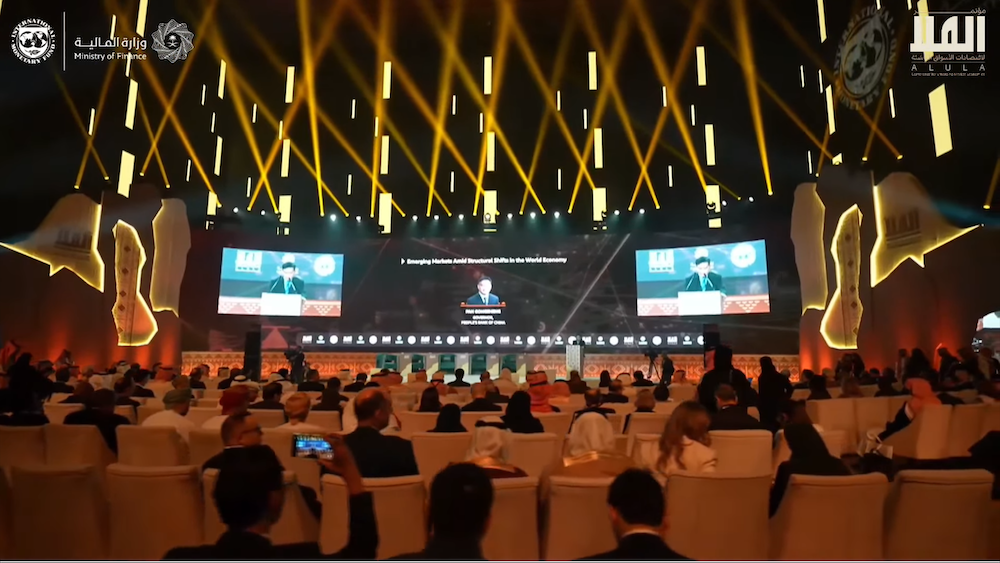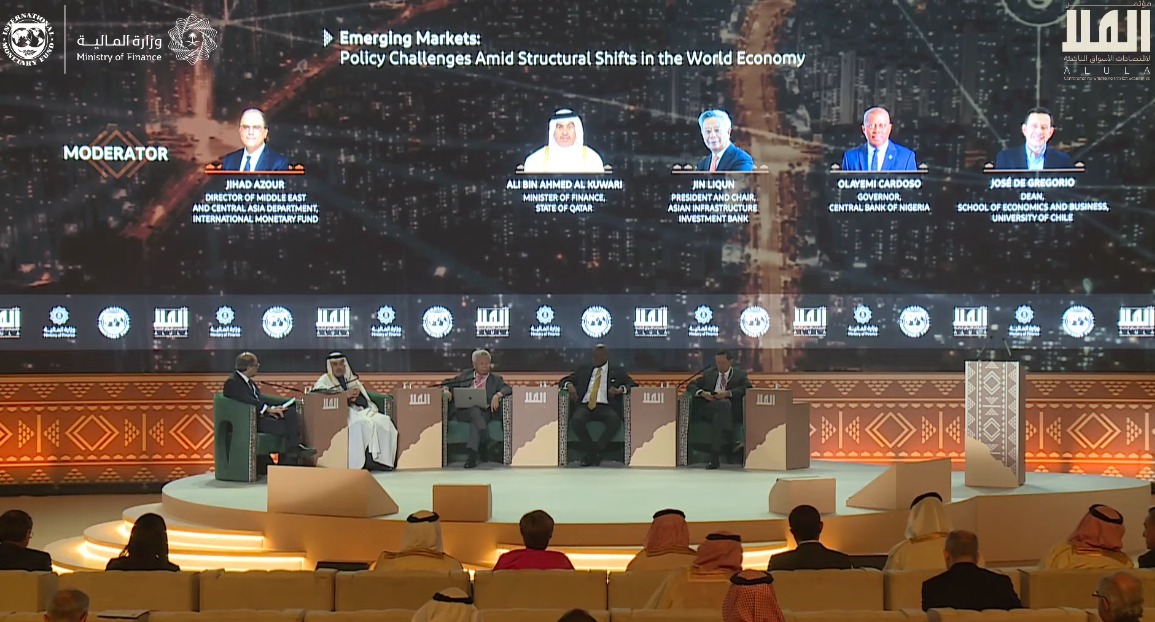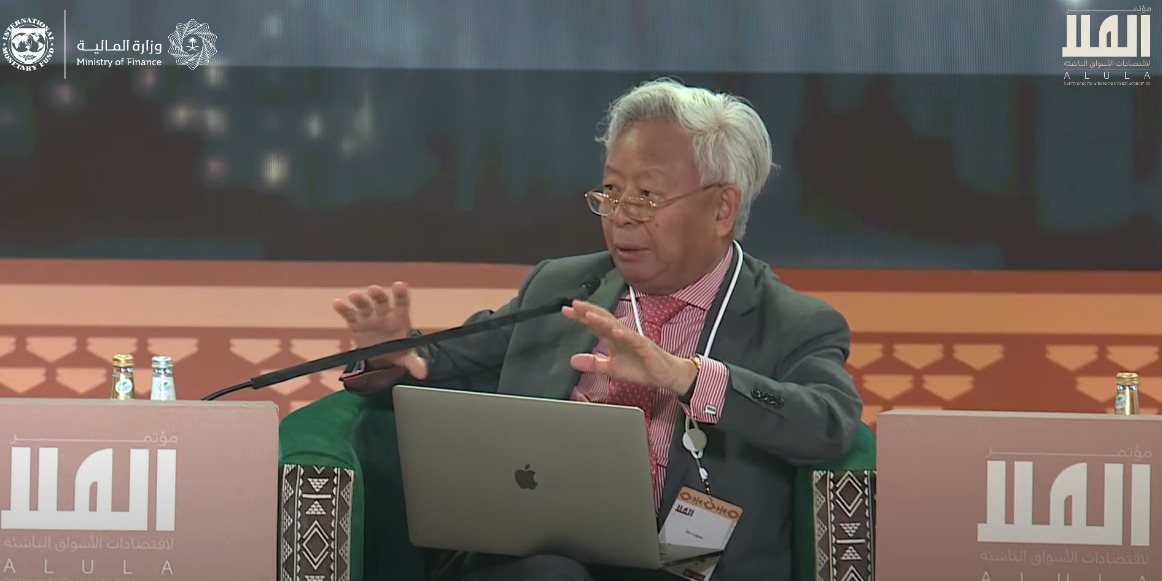RIYADH: Sovereign debt risks, structural reforms, and trade policies take center stage as global financial leaders and policymakers convened in Saudi Arabia for the first AlUla Conference for Emerging Market Economies.
The high-profile summit comes amid ongoing economic turbulence, with leaders seeking solutions to enhance financial stability and resilience.
The two-day event, hosted by the Saudi Ministry of Finance in partnership with the International Monetary Fund, is being held from Feb. 16— 17 in AlUla. The historic site is fast becoming a venue for strategic economic dialogues, underscoring Saudi Arabia’s efforts to assert itself as a key player in shaping financial policies for developing economies.
The conference aligns with the Kingdom’s broader efforts to solidify its role as a hub for global economic dialogue and under Vision 2030, it continues to lead economic diversification initiatives, emphasizing collaboration and innovation to navigate global economic shifts.
Saudi Minister of Finance Mohammed Al-Jadaan highlighted the conference’s role in addressing common economic challenges and fostering a more inclusive and resilient global economy.
“Today, we will explore ways to address our shared challenges so we can build a stronger global economy that is durable and inclusive for all nations,” he said.
Al-Jadaan stressed the importance of international cooperation, adding: “There is no pathway more effective than broad multilateral cooperation, and that work starts with conversations like the ones we are having at this conference.”
One of the key challenges addressed during the opening ceremony was sovereign debt, which Al-Jadaan described as a threat to economic progress.
“Since we all share the benefits, we should also work together to address structural risks like sovereign debt, which threatens development gains,” he said, adding that innovative solutions, including improving global debt restructuring frameworks, are necessary.
IMF Managing Director Kristalina Georgieva echoed Al-Jadaan’s statements, emphasizing the importance of emerging markets in global economic stability. “You, the leaders in this room, have weathered the shocks of the past few years remarkably well, and your economies have delivered two-thirds of global growth,” she said.
Georgieva called for the need for agility and resilience in the face of economic uncertainty. “Emerging markets will need to be agile, adaptable, and resilient,” she added, pointing to key areas such as inflation, high debt, and structural reforms that require urgent attention to improve competitiveness and productivity.
She also praised Saudi Arabia’s leadership in establishing a dedicated space for emerging markets to discuss critical policy issues. “Minister Al-Jadaan not only identified a gap in terms of space for emerging markets to discuss policy issues of common interest, but he decided to close it,” she said.
Georgieva spoke of the IMF’s newly established regional office in Riyadh, emphasizing its pivotal role in realizing this vision. The office — the first of its kind in the Middle East and North Africa — was inaugurated on April 24 last year during the Joint Regional Conference on Industrial Policy for Diversification, co-hosted by the IMF and the Saudi Ministry of Finance.
She stressed the importance of mobilizing more resources for the IMF’s Poverty Reduction and Growth Trust. “The IMF needs more capacity to help vulnerable countries and to continue to adapt to evolving challenges.”
Looking ahead, Al-Jadaan called for global economic cooperation that benefits all stakeholders. “We should be laser-focused on improving the lives of our people.
“We must find common ground to serve the common good and seek win-win solutions, fostering productive cooperation between East and West, South and North, to create a positive spillover for our neighbors and trading partners.”
On the sidelines of the conference, the Saudi Ministry of Finance signed key agreements to strengthen international economic cooperation.
Saudi Minister of Finance Mohammed Al-Jadaan and Moroccan Minister of Economy and Finance Nadia Fettah signed a memorandum of understanding to enhance collaboration in the financial sector. Additionally, the Saudi ministry signed a joint declaration with the Asian Infrastructure Investment Bank to promote infrastructure investments across the Kingdom.
The conference is expected to generate actionable recommendations that will support emerging economies in enhancing financial stability and sustainable growth. Discussions will also explore how artificial intelligence and digital transformation can drive economic progress in developing economies.
Participants are set to discuss strategies for economic resilience, aiming to strengthen cooperation between emerging and advanced economies for a more equitable and sustainable future.



























